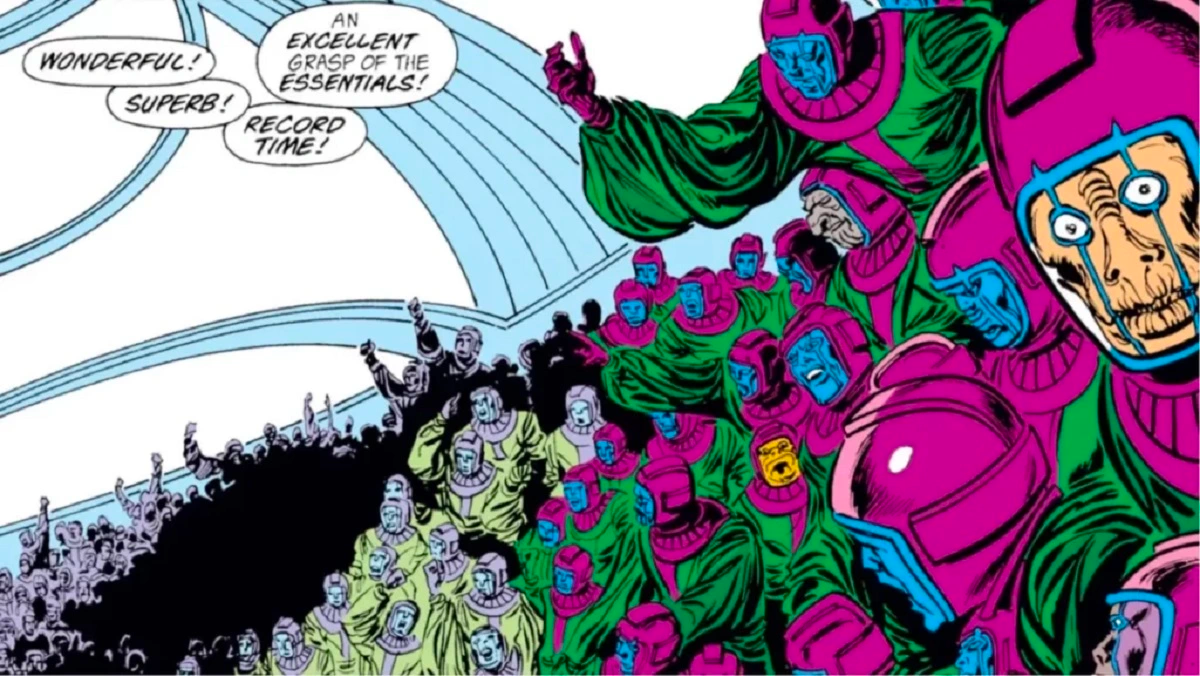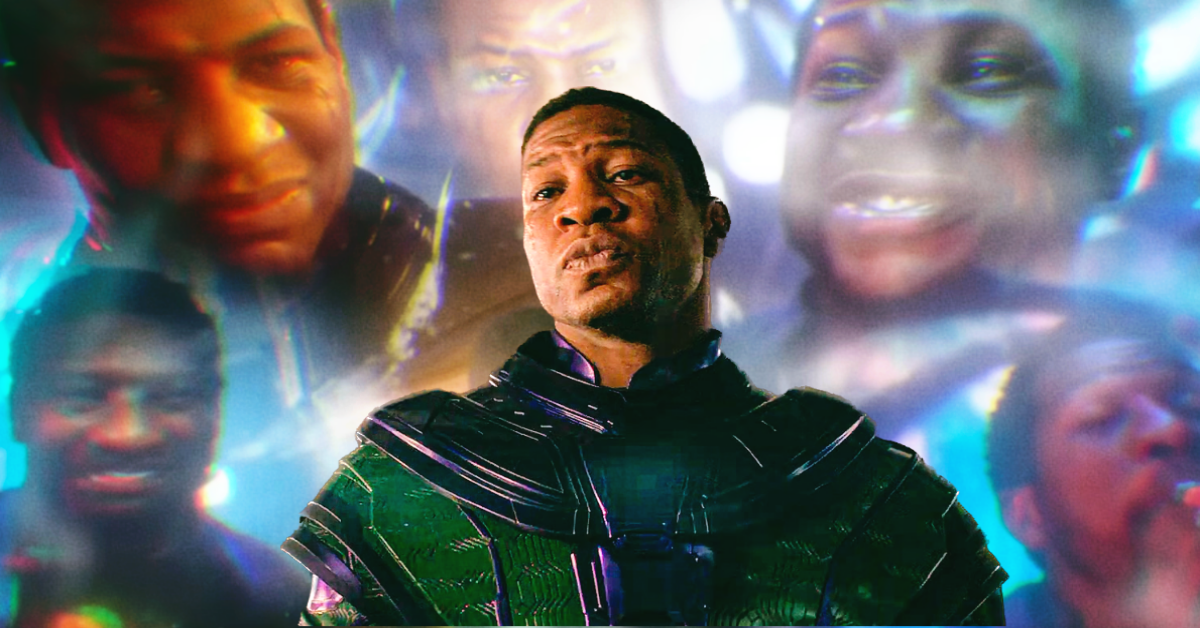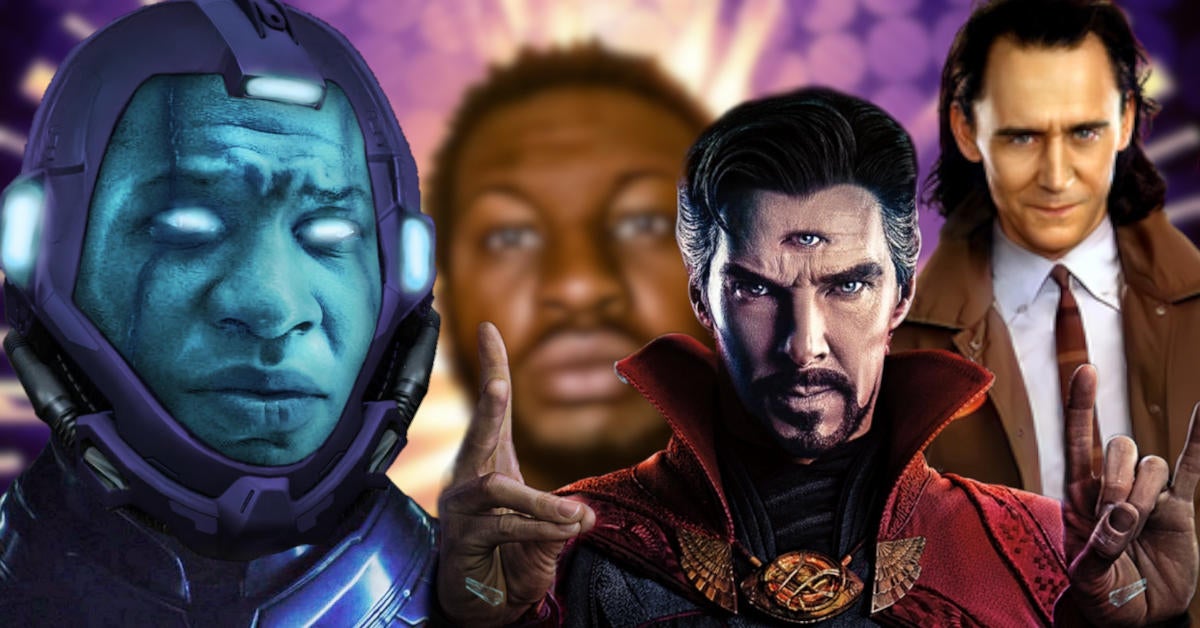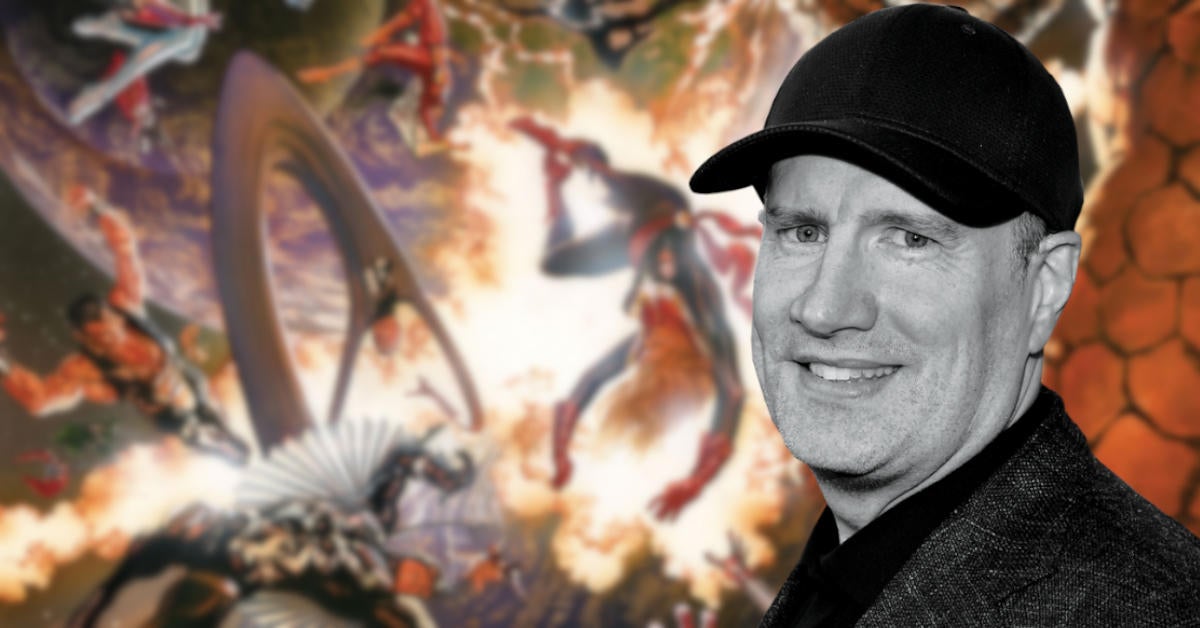Marvel Theory: The Council of Kangs Have Been Influencing MCU Heroes Since Phase 4
Ant-Man and the Wasp: Quantumania officially introduced us to the villain of the Multiverse Saga, Kang the Conquerer (Jonathan Majors) – as well as an entire army of Kang variants, lurking outside time/space. While Quantumaina initially seemed straightforward with its story, Marvel fans have had growing theories that the film actually revealed much more about the time-bending history of Kang and his variants, as well as how The Council of Kangs exercises its power over multiple realities.
What Is The Council of Kangs?

The first step to this is understanding what the Council of Kangs is. Based on what we learned from He Who Remains in Loki Season 1, and Kang the Conqueror in Ant-Man 3, "Kang" began as a future scientist (Nathaniel Richards?) who discovered the multiverse and started to travel there Rick and Morty-style, meeting and trading ideas and technology with his variant selves. However, some of the scientists' variants turned out to have darker designs, such as conquering or eliminating the other variants and their timelines. A Multiversal War kicked off, but so many Kang variants playing with timelines threatened the larger Multiverse with total annihilation via endless incursions (stacked realities of the multiverse crashing into one another).
The timeline of events gets a little murkier from here, but the bottom line is that there are key events that happened to put the Multiversal War on pause:
- He Who Remains established one "Sacred Timeline" of reality (the MCU we know), while keeping his variants walled out of existence. When Loki's variant Sophie kills He Who Remains, the Sacred Timeline ruptures and became the multiverse again, freeing the Kang variants to resume warring.
- The Council of Kangs is formed and embarks upon its own agenda of shaping and controlling the timelines of the multiverse.
- "Kang the Conqueror" sets upon his own goal of taking command of his variants and their chaotic battling and establishing his own order and rule of the Multiverse. The Council of Kangs unites against the Conqueror and exiles him outside of space/time in the Quantum Realm.
When Kang the Conqueror seemingly dies in the Quantum Realm, The Council of Kangs must finally address the fact that Marvel heroes (Spider-Man, Doctor Strange, Scarlet Witch, America Chavez, the Ant-Man Family) are beginning to mess with the fabric of the Multiverse, and therefore could disrupt Kangs' control of reality. However, it's The Council of Kangs' current power hold that is the big game-changer: whereas Thanos was on a quest to obtain power in The Infinity Saga, The Council of Kangs already has the ability to go to anytime in any reality, and influence events at their whim. The entire past, present, future, and alternate realities of the MCU are vulnerable to the Council of Kangs' machinations.
How To Make A Kang Dynasty

Kang's saga in Marvel Comics has many highlights, but some of the best are tales like Avengers Forever or Timeless. Those are examples of stories in which Kang and his variants' influence over the timelines of the Marvel Multiverse (and key moments of its history) are set against the one conqueror's burning desire to affect time in some kind of singular, permanent, way. It's a good bet that The Kangs' scheme leading to Avengers: The Kang Dynasty won't be a repeat of Avengers: Infinity War (i.e., The Council of Kangs bum-rushing the MCU in a mass attack). As Loki (Seasons 1 and 2) are already teasing, Kang (or Immortus, Rama-Tut, The Centurion, Victor Timely, He Who Remains, etc.) is a villain who will be embedded all over time, realities, and realms of the MCU – and the Council of Kangs could very well be more of an espionage effort than a warring army.
That brings us to the heroes of the MCU. One of the biggest criticisms of the MCU post-Endgame has been the disconnected feel of the franchise, and the lack of the same kind of cohesive pointed storyline as the Infinity Saga. But what if that has been the entire goal of the Council of Kangs, all along?
Looking at the content of MCU Phase 4 and 5 so far, there are two storylines taking shape that could lead to the reveals and dire turns of Avengers: The Kang Dynasty:
- Stories about those messing with the nature of reality and/or the multiverse (WandaVision, Doctor Strange in the Multiverse of Madness, Thor: Love & Thunder, Loki, Ant-Man and the Wasp: Quantumania) and presumably getting noticed by the Council of Kangs.
- Stories about heroes using key artifacts that could be needed to resist the Council of Kangs and their temporal manipulations (The Ten Rings, Kamala Khan's armband, Vibranium, etc.).
While the latter group may not get noticed by the Council of Kangs, the heroes who have breached the multiverse or warped their reality in some way definitely have been (as the Ant-Man 3 post-credits scene may reveal). A theory about Ant-Man and the Wasp: Quantumania's ending states that the Council of Kangs actually meddled with Scott Lang's reality to make him content in his fame and family life – never focusing too long on the question of Kang and the multiversal threat that was promised. Let's extend that idea to every Marvel project that saw reality getting messed with: what if those new status quos are actually just velvet cages for the heroes, provided by the Council of Kangs?

Scott Lang and the Ant-Man Family are content in their happy life, after starting from such dark, estranged, places. Peter Parker has a fresh start at his entire life, with a hopeful outlook; Doctor Strange is following a potential major love interest into a realm arguably outside space/time (The Dark Dimension) diverting his attention, and America Chavez has found a new surrogate family to stay put within Kamar-Taj, instead of hopping the multiverse.
In short, every hero that meddled with the Multiverse may be getting manipulated by the Council of Kangs to keep them away from digging deeper. If they did it to Scott Lang... could Doctor Strange (or even Steve Rogers?!) have also had their lives touched by the Council of Kangs? If the Council of Kangs is able to manipulate timelines on such a large scale, in actual coordinated efforts, then keeping heroes close to discovering their multiversal manipulations at bay would be key.
Secret Wars Survivors

Meanwhile, Wanda (arguably the biggest threat to the council of Kangs) is out of commission for now but will be back. Poor Loki (the one with the most knowledge that the Council of Kangs is coming and the Sacred Timeline is gone) is lost in an alternate reality and trying to get back. Many of the heroes unaware of the Multiverse – Kamala Khan, Shang-Chi, Black Panther, Moon Knight, etc – are just beginning to become aware that mystical powers and alternate realms are out there; however, they also may hold the keys to surviving the grand implosion of the Marvel Multiverse we all know is coming – thanks to the mystical ties and/or special artifacts they are in possession of. Add to that list The Fantastic Four, who will almost certainly be aware of and ready for the end of reality as we knew it in the MCU.
The juicy thing about this MCU version of Kang and the Council of Kangs is that so many of the MCU Phase 4 and 5 complaints we've heard so far (from who has Avengers Tower to no one is freaking out about a half-risen Celestial) could turn out to be the exact kinds of open spaces for awesome reveals in Avengers: The Kang Dynasty if it follows the comics by showing us different pieces of MCU history and events (familiar and new) which were actually influenced by Kang and his variant selves in a coordinated effort. If Marvel Studios really wants to top the Infinity Saga climax, that would be a great way to do it.
Ant-Man and the Wasp: Quantumania is now in theaters.
0comments